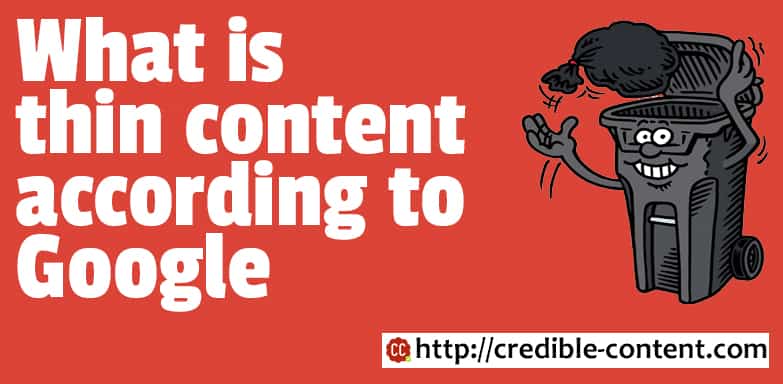In this blog post you will learn how quality content writing improves your SEO.
Text is everywhere. All the home automation devices like Amazon Echo and Google Home, although powered by voice commands, in the background, work on text.
Search engine rankings are based on the textual content on your website or blog.
Even cryptic information residing in the deep artificial intelligence lives and breathes in the form of text.
What I’m saying is, content writing isn’t going anywhere despite big push towards video and imagery.
Read this detailed article from The Atlantic on how many major publications were pushed to the brink of collapse (including Facebook) when they fired their writers in favor of videographers.
Yes, every form of content has its importance but ultimately, everything boils down to writing.
Try publishing just videos or just images on your website and blog, and see what happens to your SEO.
Quality content writing and SEO are interlinked.
Vis-à-vis SEO, what does quality content writing mean?
The quality attribute is multifaceted when it comes to writing for the web, especially to improve your SEO.
I’m using the example of search engine optimization because this is the focal issue of this particular blog post, otherwise, I never advise you to solely aim for SEO. Aim for quality content and SEO is automatically taken care of.
Quality here means it solves your purpose. What is your purpose?
Get more business, of course.
But, there are many stages in between – from someone realizing that he or she needs what you have and then that someone not just finding you, but deciding to do business with you. Many stages.
These are the stages when most of the business is lost.
The job of quality content is to convince people into believing you and then deciding to pay you for what you are offering.
For that, you need to improve your conversion rate.
Your conversion rate can only be improved when you are able to convince people.
Since you cannot convince 100% visitors who come to your website, you have to somehow figure out the maximum number of visitors you can convince into doing business with you.
Suppose, 5%.
This means, if 100 visitors come to your website, 5 of them become your customers or clients.
With the same conversion rate, if you want to get 50 customers or clients, you need to get 1000 visitors.
How do you get these 1000 visitors? You have 3 options:
- Improve your SEO for your targeted keywords
- Become active on social media
- Use paid advertising
If you want to use paid advertising, it must be in your scheme of things.
But if you don’t want to use paid advertising and you would like to go for a more sustainable mode of generating targeted traffic to your website, you will improve your SEO and you will become more active on social media, and for both these activities, you need quality content.
The quality of your content writing began to matter first on social media – nobody would care for you if you didn’t provide value – and then even Google began to change its algorithm to rank only quality content.
So, it isn’t important what you write and what you publish, what’s important is, how people react to it.
If they don’t react to it properly, even the search engines ignore it.
Quality content writing improves your SEO – explained
Your SEO these days solely depends on how valuable, purposeful and relevant your content is.
Why?
Why must people find your content when they look for a certain keyword or search term?
You may say that they must find you so that you get a chance to promote your products or services to them, once they are on your website or blog.
Fair enough. Even I want that.
But what about those people who are searching? What do you give them?
Now, if you didn’t face much competition, you could easily say that if someone is looking for a web designer, he or she should come to your website because you provide web design services.
In my case, if someone is looking for a professional content writer, he or she should come to my website because I provide professional content writing services.
There are thousands of web designers. Also there are thousands of content writers.
People who appear for “web designer” and “content writer” on the first top 10 search engine results, have definitely done something to appear there.
They must have gotten scores of quality back links.
They must be quite active on social media to elicit lots of positive response from their followers.
The must have lots of quality content on their websites so that their bounce rate is very low (a high bounce rate is bad for your SEO).
They must have been in the game for quite some time – the age of their domains must be very old.
People searching for products, services and information have no personal interest in finding your website or blog.
Even Google doesn’t have any personal stake in your website. The search engine solely depends on the algorithm and it’s the algorithm that decides the rankings of your individual links.
Now, this algorithm is constantly evolving.
For a machine, no matter how evolved artificial intelligence gets, it is very difficult to gauge the true value of a piece of content.
This is why Google heavily relies on the reaction of people.
I’m writing this blog post on “why quality content writing improves your SEO”.
Based on my existing rankings Google may rank this blog post in whichever manner.
Then it begins to gather data about how people interact with this piece of content on the Google search engine itself, and also on other websites and social media platforms.
People retweet my tweet with this link – good, Google notches up my rankings perceptibly or imperceptibly.
People like my update carrying this link on Facebook and they also leave comments and they may even share my update. Another boost to my rankings.
When people find my link in search results they come to this blog post and read it.
The more time people spend on this link, the more Google gets convinced that this link solves the purpose of the search query that was used to find this link. Hence, improve its rankings.
If most of the people no longer search for the same query after accessing my link, Google assumes that my link solves the purpose of the query and further improves its rankings.
The cycle goes on and my link keeps moving up.
Now, why would people react positively to this particular link?
They are not emotionally attached to me or my website. Most of them don’t even know me. They couldn’t care less about my SEO.
The only reason they retweet or share my link is because they like it and they like it only because I provide quality content to them. This can only be achieved through quality content writing.
Again, why would people spend more time on this link?
Because they have a reason to go on reading the matter. They find the content useful. This brings down the bounce rate of this link or blog post.
They have no personal interest in lingering on the blog post without reason. The only reason is, they are getting what they were looking for.
Best possible scenario: they don’t go back to Google with the same search query. They don’t check out other links for the same search query.
This indicates to Google that the link solves the purpose of the search query and the user no longer has to check out other links.
These things can only happen if you provide quality content, relevant content, content that is engaging, useful and solves the purpose.
If you focus on providing value to your visitors, you don’t have to worry about your search engine rankings because search engine rankings these days depend less on how you use your keywords, and more on how people react to your content.
Their reactions decide your SEO.
So, when writing content, simply focus on getting positive, constructive reaction from your visitors. The rest is taken care of on its own.



